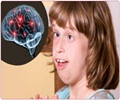Researchers have identified a crucial link between protein synthesis and autism spectrum disorders (ASD).

A new study in mice by researchers from McGill University and the University of Montreal has found that abnormally high synthesis of a group of neuronal proteins called neuroligins results in symptoms similar to those diagnosed in ASD.
The study also revealed that autism-like behaviours could be rectified in adult mice with compounds inhibiting protein synthesis, or with gene-therapy targeting neuroligins.
Autism spectrum disorders (ASD) encompass a wide array of neurodevelopmental diseases that affect three areas of behaviour: social interactions, communication and repetitive interests or behaviours. According to the U.S.-based Centers for Disease Control and Prevention, 1 in 88 children suffer from ASD, and the disorder is reported to occur in all racial, ethnic, and socio-economic groups. ASDs are almost five times more common among boys (1 in 54) than among girls (1 in 252).
"My lab is dedicated to elucidating the role of dysregulated protein synthesis in cancer etiology. However, our team was surprised to discover that similar mechanisms may be implicated in the development of ASD", explained Prof. Nahum Sonenberg, from McGill's Dept. of Biochemistry, Faculty of Medicine, and the Goodman Cancer Research Centre.
"We used a mouse model in which a key gene controlling initiation of protein synthesis was deleted. In these mice, production of neuroligins was increased. Neuroligins are important for the formation and regulation of connections known as synapses between neuronal cells in the brain and essential for the maintenance of the balance in the transmission of information from neuron to neuron," Prof. Sonenberg said.
Advertisement
"Our work is the first to link translational control of neuroligins with altered synaptic function and autism-like behaviours in mice. The key is that we achieved reversal of ASD-like symptoms in adult mice. Firstly, we used compounds, which were previously developed for cancer treatment, to reduce protein synthesis. Secondly, we used non-replicating viruses as vehicles to put a break on exaggerated synthesis of neuroligins," he stated.
Advertisement
"By using a new sophisticated computer algorithm that we specially developed to answer Dr. Sonenberg's questions, we identified the unique structures of mRNAs of the neuroligins that could be responsible for their specific regulation," explained Prof. Francois Major, of the University of Montreal's Institute for Research in Immunology and Cancer and Department of Computer Science.
The researchers found that dysregulated synthesis of neuroligins augments synaptic activity, resulting in an imbalance between excitation and inhibition in single brain cells, opening up exciting new avenues for research that may unlock the secrets of autism.
"The autistic behaviours in mice were prevented by selectively reducing the synthesis of one type of neuroligin and reversing the changes in synaptic excitation in cells," explained Prof. Jean-Claude Lacaille at the University of Montreal's Groupe de Recherche sur le Systeme Nerveux Central and Department of Physiology.
"In short, we manipulated mechanisms in brain cells and observed how they influence the behaviour of the animal," the researcher noted.
The researchers were also able to reverse changes in inhibition and augment autistic behaviours by manipulating a second neuroligin.
"The fact that the balance can be affected suggests that there could be a potential for pharmacological intervention by targeting these mechanisms," Lacaille concluded.
Their results have been published in the journal Nature.
Source-ANI












